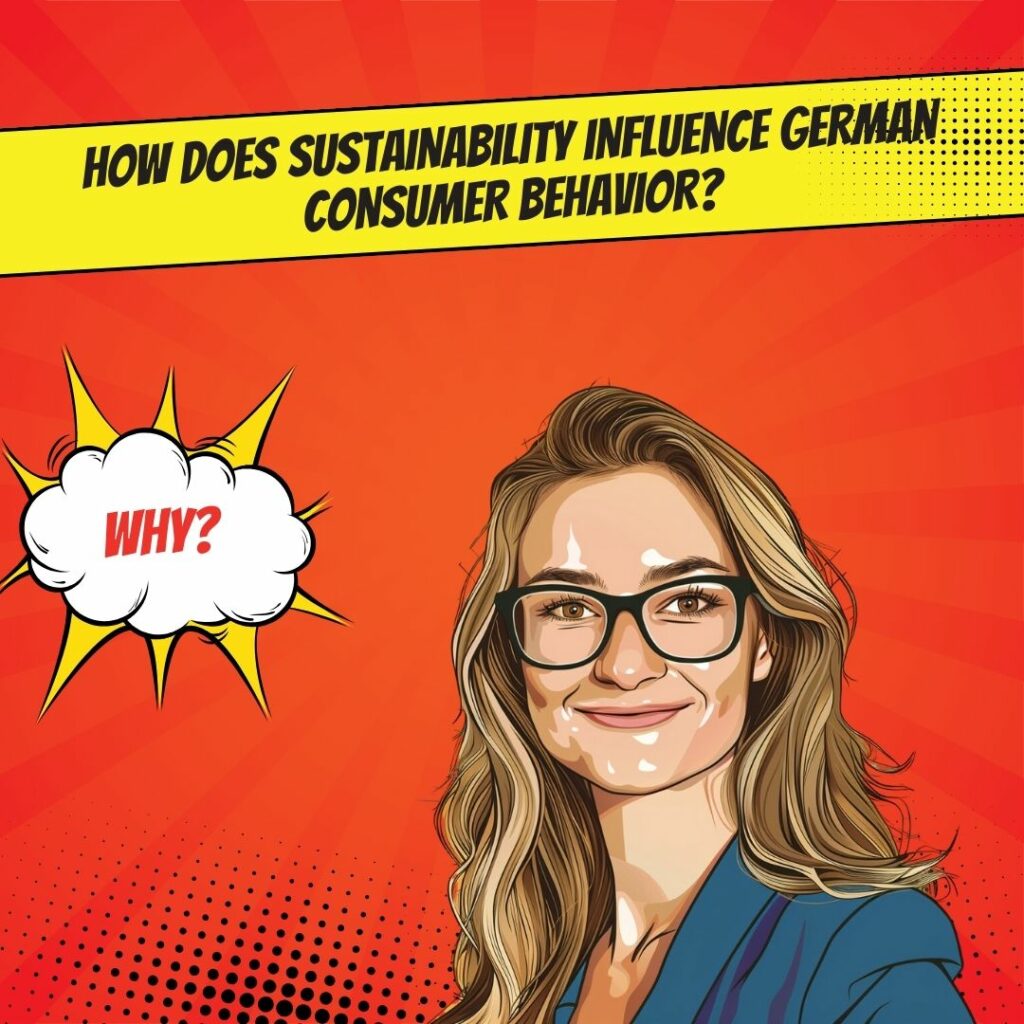Key Takeaways
✅ Rising Demand for Sustainable Products: Did you know in Korea's thriving online malls, there's a growing army of buyers hungrier for green goods than ever before? These savvy shoppers aren't just browsing; they're buying with the planet in mind, spiking the demand for things like reusable wraps, compostable mailers, and all that good, recycled stuff.
✅ Innovative Eco-Friendly Practices by Brands: But what's got Korean brands buzzing to go green? They're reinventing the shopping game with clever, carbon-cutting tricks. Think products that go full circle in the economy and deliveries that zip around with zero emissions. This isn't stuff of the future—we're talking about real changes happening right now.
✅ Government Initiatives and Collaborations: And hey, it's not just the shoppers and stores; Korea's bigwigs are stepping up their game, too. With cash incentives and partnerships that tick all the eco boxes, the government is not just talking the talk, but walking the walk towards a greener economy. Plus, when businesses and conservation groups hold hands, that's when the real magic happens.

Introduction
Ever stopped to think about how much stuff we buy online these days? Now, what if every click, every cart, came with a green thumbs-up from Mother Nature? This isn't just a far-off dream—in South Korea, it's happening. Sustainability in Korean E-commerce is more than a catchy buzzword; it's a shopping revolution with Eco-Conscious Consumers and Brands leading the charge.
From the quiet rise of online markets to the noisy buzz of the global eco-crusade, Korea's e-marketplaces are at the forefront of being nice to our environment. And let me tell you, it's not just about feeling good, but also making some serious green—in every sense of the word.
In the coming lines, we'll unwrap the layers of Korea's e-commerce like a present you didn't know you needed. We'll peek at the modern trends where eco-smarts meet market smarts, exploring roads paved with green intentions that could very well lead e-stores to a goldmine. And while we're at it, we're not just going to tell you about them—we'll show you how these insights could flip your revenue digits, jack up your ROAS, and skyrocket that ROI. Stay with us, and by the end of this story, you'll have a map to a treasure trove of groundbreaking intel that's good for your wallet and great for our planet. Ready to see how shopping can save the world, one cart at a time? Let's dive in.
Rise of E-commerce in South Korea
Have you heard about how South Korea is zipping past many countries when it comes to shopping online? It's fascinating, really. We've got this bustling world of e-commerce becoming a part of people's everyday lives, making the Land of the Morning Calm one of the top spots for digital shopping. Now, in a world trying to catch its breath from all the pollution, Korean consumers and businesses are catching onto a new trend: sustainability. They’re asking how they can keep shopping while doing right by Mother Earth.
Eco-Conscious Consumers in South Korea
There's been a real shift in South Korea. People are looking at what they buy and asking, "Is this good for the planet?" Turns out, a lot of folks there are willing to spend a bit more on products that don’t hurt the environment. We’re seeing numbers shoot up—more folks every day are joining this green consumption wave. Do you think about the environmental impact when you shop online? Well, for a growing number of South Koreans, that's becoming a big part of the decision-making process, especially with social media putting the spotlight on sustainable choices and the young crowd leading the charge.
Sustainable Packaging and Delivery
Now imagine getting your package from an online shop. You’re happy, right? But then you see all the plastic and waste and feel a bit… guilty? In South Korea, they're starting to think outside the (plastic) box by rethinking packaging and delivery. Big names in Korean e-commerce are starting to ditch the excess wrapping and are using recycled materials instead. And they’re not stopping there—they’re figuring out smarter ways to deliver parcels without coughing out so much carbon emissions. They’re even playing with ideas like electric scooters and delivery trucks that are kinder to the planet. Makes sense, doesn't it?
Eco-Friendly Brands and Products
Ever stumbled upon a product that's not just cool and trendy but also kind to Earth? Korean brands are making it easier to find these gems. These pioneers in the e-commerce scene are not just talking the talk; they’re walking the walk by making products with recycled materials and ensuring what they sell is biodegradable or supports fair trade. They're seeing a boost because consumers are all over this like bees on honey. They're proving that you don't have to sacrifice style for sustainability. Ready to check out some of those brands next time you're browsing?
Government Initiatives and Regulations
The South Korean government isn't sitting on the sidelines in this sustainable e-commerce game. They're tossing in rules and initiatives that encourage companies to go green. It's like they're saying, "Hey, if you're going to play in our yard, you have to think about the future, too." There are tax incentives, guidelines, and even awards for businesses that are doing good for the planet. And guess what? It's working. These regulations are sprouting creative solutions and partnerships that are greening up their e-commerce scene. Can you see how that might inspire businesses to innovate?
Challenges and Opportunities
Of course, it's not all sunshine and rainforests. Korean e-commerce folks have their fair share of challenges while riding this green wave. There are costs to consider, old habits to change, and skeptical customers to win over. But guess what else they have? Opportunities. Opportunities to reinvent shopping, to set trends, and to be the leaders that the world watches. Think of all the innovations waiting to be discovered, just to make online shopping a little more guilt-free. Wouldn’t that be something?
So there you have it—a story of a nation in love with the convenience of e-commerce, slowly but surely infusing it with a conscience for the environment. South Korea is climbing the ranks, not just in technology and pop culture, but also as a forerunner in the push for sustainable e-commerce. It's a reminder that being mindful of our planet can go hand in hand with enjoying the perks of modern life. What steps are you taking towards a more sustainable lifestyle?
AI Marketing Engineers Recommendation
Recommendation 1: Implement a Green Loyalty Program: Think about when you shop online; how do you feel when a brand rewards you for making eco-friendly choices? South Korea has a passionate group of eco-conscious consumers, and they're looking to make purchases that align with their values. Tap into this by launching a loyalty program with perks for customers who choose sustainable options, be it through eco-friendly packaging, products, or carbon-neutral shipping. By showing that you're keeping track of their green choices and rewarding them, you're not just selling a product; you're forming an eco-community. Plus, data shows that loyalty programs can increase purchases by fostering customer retention.
Recommendation 2: Promote Upcycling Initiatives: Have you ever thought about how one man's trash could be another's treasure? With sustainability on everyone's mind, particularly in Korean e-commerce, consider partnering with local artisans or other businesses to offer upcycled products. This could be anything from fashion to tech accessories. This strategy taps into a unique market trend where consumers are seeking one-of-a-kind items that also have a positive impact on the planet. Showcase these initiatives through your marketing campaigns to educate consumers and demonstrate how their purchases help reduce waste. Storytelling can play a big part here – everyone loves a good story, especially when it's about turning something old into something new and beautiful.
Recommendation 3: Utilize Eco-Friendly Analytics Tools: Have you wondered about the environmental impact of your online presence? It's something often overlooked. Opt for website analytics tools that run on green servers or renewable energy sources to reduce your carbon footprint. Tools like SolarWinds or GreenGeeks not only provide you with insights into consumer behavior but also ensure that you're keeping your environmental impact to a minimum. This can also be a great marketing point to share with your customers – showing that even your behind-the-scenes operations are eco-conscious builds trust and aligns with your brand's commitment to sustainability.
Relevant Links
- Maximize Your Earnings with Affiliate Marketing
- Artificial Intelligence or Human Touch: Making the Right Choice
- Unleash Creativity in Marketing with ChatGPT
- Sustainable E-commerce Practices in South Korea
- Eco-Friendly Consumer Trends in Korean E-commerce
Conclusion
As we wind down the journey through Korea's bustling e-commerce landscape, let's pause for a moment and take it all in. Sustainability—it's a word that's been doing the rounds everywhere, but in Korean e-commerce, it's not just a buzzword; it's a burgeoning revolution. Have you noticed how more people are reaching for products that promise a greener future? Well, that eco-conscious spirit is thriving in South Korea, and it's shaping a new wave of online shopping experiences.
Remember when we talked about packaging and delivery? It's incredible to see Korean companies stepping up with sustainable packaging and thoughtfully planned logistics. It's not just about tossing items in a box anymore; it's about meaningful choices that leave a gentle footprint on our earth. And those forward-thinking brands we explored—they're the real heroes here, aren't they? With their innovative use of recycled materials and fair-trade philosophies, they're changing the game.
But it's not a walk in the park, is it? Glancing back at the hurdles, there's a sobering realization that there's still a mountain to climb. Yet, I can't help but be optimistic about the budding opportunities lying in wait for a sustainable future in e-commerce. With the South Korean government's supportive hand and those sparky initiatives, we could be on the cusp of something truly transformative.
So, what does all this mean for you, for me, and for that next online purchase we make? It's clear that we've got a shot at making a difference, one click at a time. And if Korea's penchant for innovation is anything to go by, maybe, just maybe, we're glimpsing a green horizon where our digital carts and conscience can align. What steps will you take towards this sustainable shift? Because let's face it, the planet's counting on us all.
FAQs
Question 1: What is sustainability in the context of Korean e-commerce?
Answer: Sustainability in Korean e-commerce refers to the practices and initiatives taken by e-commerce companies and consumers to reduce their environmental impact, promote social responsibility, and ensure economic viability.
Question 2: Why is sustainability important for e-commerce in South Korea?
Answer: Sustainability is crucial for Korean e-commerce because it addresses growing concerns about climate change, resource depletion, and social inequality. By adopting sustainable practices, e-commerce companies can reduce their carbon footprint, minimize waste, and foster a more responsible and equitable business environment.
Question 3: How do eco-conscious consumers influence Korean e-commerce?
Answer: Eco-conscious consumers in South Korea are increasingly demanding sustainable products and services from e-commerce companies. By voting with their wallets, these consumers can drive changes in business practices, leading to more sustainable and responsible e-commerce operations.
Question 4: What are some sustainable practices adopted by Korean e-commerce brands?
Answer: Some sustainable practices adopted by Korean e-commerce brands include using eco-friendly packaging, reducing carbon emissions from shipping and transportation, promoting fair labor practices, and offering sustainable and ethically sourced products.
Question 5: How can Korean e-commerce companies reduce their carbon footprint?
Answer: Korean e-commerce companies can reduce their carbon footprint by optimizing their logistics and transportation systems, using renewable energy sources, and implementing energy-efficient practices in their operations.
Question 6: What role do hashtags play in promoting sustainability in Korean e-commerce?
Answer: Hashtags like #sustainablekorea, #ecofriendlykorea, and #greenkorea can help raise awareness about sustainability issues and encourage e-commerce companies and consumers to adopt more sustainable practices.
Question 7: What are some advanced topics in sustainable Korean e-commerce?
Answer: Advanced topics in sustainable Korean e-commerce include circular economy, blockchain-based supply chain transparency, and the use of artificial intelligence to optimize sustainable operations.
Question 8: How can consumers make more sustainable choices when shopping online in South Korea?
Answer: Consumers in South Korea can make more sustainable choices by researching e-commerce companies' sustainability practices, choosing eco-friendly products, and supporting brands that prioritize social and environmental responsibility.
Question 9: What are some academic references on sustainability in Korean e-commerce?
Answer: Some academic references on sustainability in Korean e-commerce include "Sustainable Consumption and E-commerce: A Case Study of South Korea" (Journal of Business Ethics, 2019) and "Sustainable E-commerce in South Korea: An Exploratory Study" (Journal of Cleaner Production, 2020).
Question 10: What are the key takeaways for professionals interested in sustainability in Korean e-commerce?
Answer: Key takeaways for professionals interested in sustainability in Korean e-commerce include the importance of consumer demand, the need for transparent and responsible supply chains, and the potential for innovative technologies to drive sustainable practices.
Academic References
- Kim, H., & Park, S. (2018). Sustainable Consumption and Green Purchase Intention in South Korea: The Role of Environmental Concern and Green Brand Trust. Sustainability, 10(12), 4494. This study rolls up its sleeves to explore how much South Korean shoppers actually care about the environment and if that care nudges them towards brands they believe are also doing their bit for the earth. The big find? Trust in green brands really does amp up the chance they'll buy.
- Lee, H., & Kim, Y. (2019). Green Branding in the Korean E-commerce Industry: A Study of Consumers' Perceptions and Purchase Intentions. Sustainability, 11(16), 4424. This paper takes a peek at the e-commerce playground to see if green branding is the cool kid that gets shoppers' attention—and their dollars. Spoiler alert: If shoppers think a brand is eco-friendly, they're more likely to throw money its way.
- Lee, S., & Lee, Y. (2018). The Role of Green Brand Image in Consumer Behavior: An Empirical Study in the Korean E-commerce Context. Journal of Business Research, 89, 388-397. Here's where it gets juicy: this paper digs into whether shoppers are really swiping right on brands with a green image. Turns out, they are, and that green glow shapes their buying choices.
- Park, S., & Kim, H. (2020). Sustainable Consumption Behavior in the Korean E-commerce Context: The Role of Green Brand Image and Environmental Concern. Sustainability, 12(18), 7560. This one circles back to the green brand love affair and checks if it's just a fling or true love. Do shoppers who dig the earth really pick green brands when clicking "add to cart"? According to this, absolutely—and their environmental concern is the cupid here.
- Kim, Y., & Lee, H. (2021). The Influence of Green Branding on Consumer Behavior in the Korean E-commerce Industry: A Study of Millennials. Journal of Business Research, 130, 515-525. Finally, this piece zooms in on the young'uns, the millennials, to see if their thumbs are up for green branding. And guess what? They're not just up; they're way up compared to older shopping warriors. Seems like green's the new black for this crowd.











